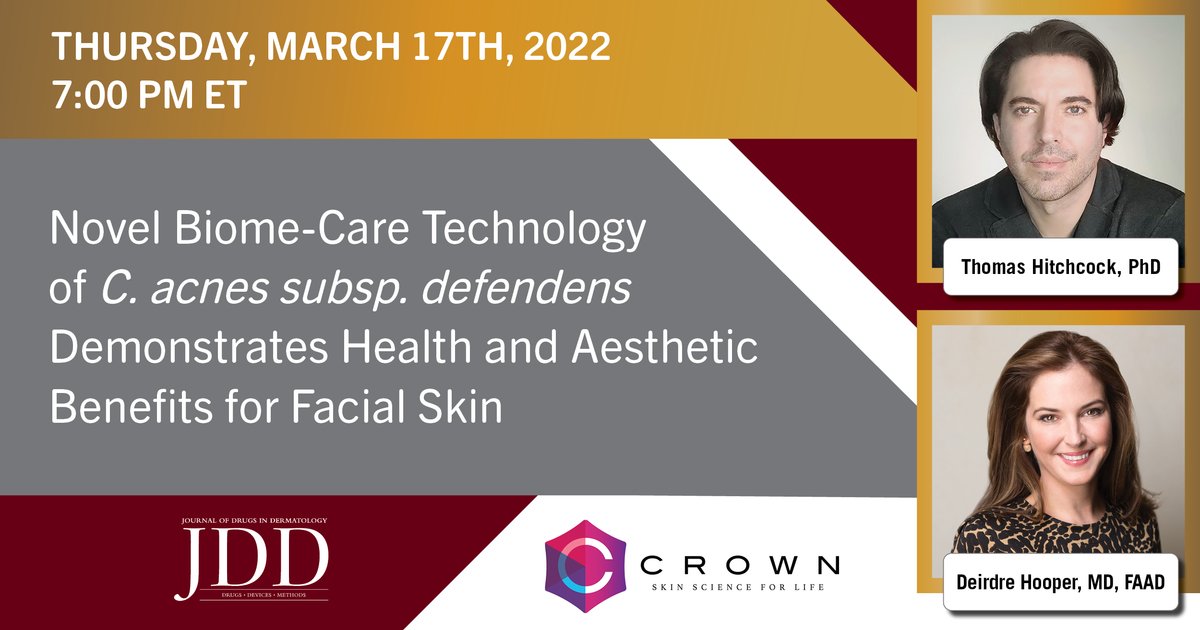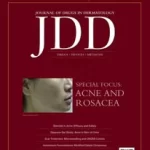
Novel Biome-Care Technology of C. acnes subsp. defendens Demonstrates Health and Aesthetic Benefits for Facial Skin
Featuring Thomas Hitchcock, PhD and Deirdre Hooper, MD, FAAD
As one ages, changes to skin biology can result in a shift in the skin biome causing microbial imbalance (dysbiosis) and significant reductions in certain microbial populations that maintain skin health. The literature and data suggest that some strains of skin-relevant microbes that were previously thought to be pathogenic (e.g., C. acnes) may indeed significantly contribute to the overall health and balance of the skin and skin microbiome by conditioning the skin and exhibiting both antioxidant and targeted antimicrobial properties. One such reduction is that of the skin symbiote C. acnes subsp. defendens. Many recent studies have suggested that this subspecies of microbe, despite the stigma attached to the overall species, is important to the overall health and beauty of the skin. While proper skincare is essential to maintaining healthy skin, the antimicrobials, preservatives, and other ingredients found in most skincare products can disrupt the natural flora of the skin and can lead to dysbiosis and subsequently to possible chronic inflammatory issues. Current evidence is emerging that suggests that the whole biome (including skin and microflora) should be considered when formulating topical products. The aim of this talk is a review of the medical literature as well as data from experiments where live microbes derived from human skin were isolated and cultured for application into topical biome-care products to significantly contribute to the overall health and balance of the skin and skin microbiome by conditioning the skin and exhibiting both antioxidant and targeted anti-aging properties.
Supported by

Faculty

Thomas Hitchcock, PhD
Chief Science Officer, Crown Laboratories
Adjunct Professor, East Tennessee State University

Get More from the JDD Webinars
Get the latest Webinar news delivered straight to your Inbox – sign up for the JDD Newsletter.
Discover the latest research, exclusive articles from leading dermatology experts,popular Podcast episodes, free CME activities, and more!









